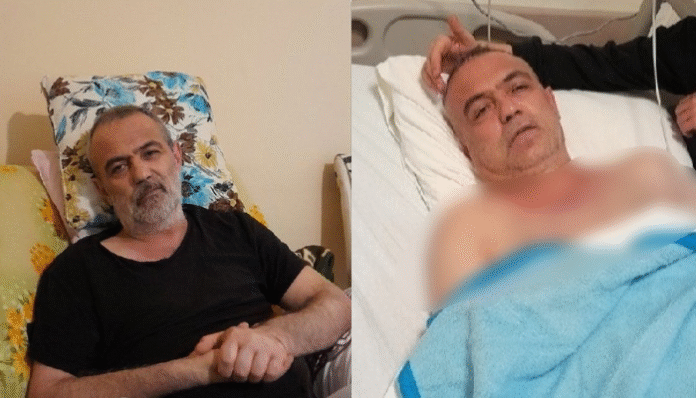The family of Dede Anıl, a seriously ill Turkish prisoner described as nearly paralyzed and suffering from severe brain damage, is calling for his immediate release after the recent deaths of inmates whose health problems went untreated behind bars.
Anıl, who is assessed as almost totally disabled, has been diagnosed with heart failure and chronic obstructive pulmonary disease. He also suffers from partial paralysis and memory loss caused by a brain clot, leaving him unable to recognize his family, understand his surroundings or meet his own basic needs.
The family’s appeal was made public this week when journalist Sevinç Özarslan shared their statement on X. “He is like a three-year-old child,” the statement read. “Yet the Council of Forensic Medicine [ATK] insists he can stay in prison.”
Anıl was jailed in May 2023 over alleged links to a terrorist organization, although the group and details of his sentence have not been disclosed.
Prison officials, citing his health, requested that his sentence be suspended. But the ATK issued reports in July 2023 and again in July 2024 concluding he could remain incarcerated. He was later transferred to another high security prison in Istanbul.
Those rulings came despite multiple hospital boards finding otherwise. A July 2023 report by Bahçelievler State Hospital declared him incapable of sustaining himself independently and recommended appointing a guardian under civil law. A disability report issued in January 2024 found him 98 percent disabled.
The ATK frequently comes under criticism for its questionable reports that find ailing inmates fit to remain in prison. Rights advocates slam the agency over its lack of independence from political influence and its role in compounding the persecution of political prisoners.
Anıl’s case reflects a broader pattern in Turkey, where seriously ill prisoners remain behind bars despite doctors deeming them unfit for detention.
Earlier this month İbrahim Güngör, a 73-year-old Alzheimer’s patient also suffering from diabetes and prostate problems, died in his cell after repeated requests for release were denied. He had briefly been transferred to a hospital but was returned to prison, where he died on September 7.
According to Law No. 5275, the sentence of a prisoner who, due to a serious illness or disability, is unable to manage life on their own under prison conditions and who is not considered a serious or concrete danger to society, may be suspended until they recover. However, the stipulated suspension of sentence is often not implemented.
The Human Rights Association (İHD) says more than 1,400 sick prisoners are currently held in Turkey, including hundreds in critical condition. Complaints include delays in transferring inmates to hospitals, inadequate treatment in prison clinics and forensic reports that allow seriously ill detainees to remain incarcerated.
Turkey recorded 709 deaths in prison in the first 11 months of 2024, according to data from the Ministry of Justice shared in response to a parliamentary inquiry.















